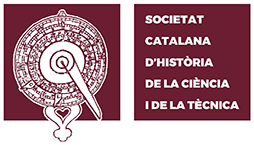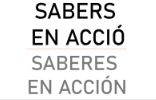9th European Spring School on History of Science and Popularization
THIRD CIRCULAR
9th European Spring School on History of Science and Popularization
Living in emergency: humanitarianism and medicine
Mahon / Maó (Menorca), 18-20 May 2017
Registration form, program, and further details are provided at the website
of the 9th European Spring School
Soins médicaux aux enfants de la CRS-SE, Genève (Archives fédérales, Berne)
Coordinated by Jon Arrizabalaga (IMF-CSIC, Barcelona)
Carlos García-Reyes (ICIII, Madrid)
Dolores Martín-Moruno (iEH2, Université de Genève)
Àlvar Martínez-Vidal (IHMC López Piñero, Universitat de València)
ESSMahon2017-FinalProgramme
Presentation
Present-day humanitarian crises, such as the Syrian Civil War and the subsequent refugee exodus, highlight the challenges of providing emergency medical relief to populations in distress, resulting from armed conflict or catastrophe, whether provoked by natural or artificial causes. Recent publications have also echoed the increasing concern with humanitarian medicine in the contemporary world, particularly, since the creation of Doctors Without Borders (Médecins Sans Frontières) following the Biafra War. The growing importance of humanitarian medicine is also reflected in the creation of university chairs in the field, as it has become an integrated part of the curricula of numerous North American and European medical schools.
Despite its widespread use, the term “humanitarian medicine” is a relatively new term and remains vague because it refers to a collection of heterogeneous practices that have historically evolved from very different disciplines such as war medicine, nursing, epidemiology and, even, food sciences. The European Spring School [ESS] “Living in Emergency: humanitarianism and medicine” aims to delve into this history by reconstructing emergency humanitarian interventions (mostly based on medical technologies) in wars and other disasters, from the mid-nineteenth century, (when the Red Cross movement was created) to nowadays. More specifically, the school aims at providing a historical perspective on humanitarian medicine by paying particular attention to three major issues, namely bodies, gender, and emotions through three different types of sources that are intimately linked to the development of modern humanitarianism: written narratives, photography and cinema. This multidisciplinary approach is intended to give new insights into past humanitarian action as well as to stimulate reflection on current humanitarian crises. As in previous sessions, this ESS is structured in key-note lectures and research workshops. Lectures will be delivered by the following scholars:
- Valérie Gorin (Centre for Education and Research in Humanitarian Action, University of Geneva and Graduate Institute): Cinema and humanitarianism in the 1920s and the 1960s: from humanitarian propaganda to representational dilemmas
- Dolores Martín-Moruno (iEH2 – Institut Ethique Histoire Humanités, Université de Genève): Gendering humanitarian war narratives: nursing within the history of compassion
- Francesca Piana (SUNY Binghamton, USA): Of suffering and healing: gendered bodies and emotions in the history of humanitarian photography
- Bertrand Taithe (University of Manchester): Humanitarianism and medicine: past and present
The workshops (coordination and comments) will be led by Jon Arrizabalaga, J. Carlos García-Reyes, Rebecca Gill (University of Huddersfield, UK), Dolores Martín-Moruno, Francesca Piana, and Bertrand Taithe.
The ESS “Living in Emergency: humanitarianism and medicine” is open to graduate students, young scholars, professionals, and activists concerned about the past and the present of humanitarian medicine and, more generally, of emergency humanitarian action. Accepted papers and posters will be briefly presented and discussed during the workshops.
Participants would be expected to address such issues as:
- Humanitarian narratives and their sources (official records, medical reports, personal writings, etc.)
- Witnessing suffering in wars and other disasters through technologies like photography and cinema
- Agencies and agendas (colonialism, national patriotism, internationalism, religious or political proselytism, war propaganda, etc.) in humanitarian medicine
- The creation of emotional responses towards vulnerable bodies in humanitarian crises
- Gender, emotions, and humanitarian action
- Caring practices and medical technologies in humanitarian action
- Categories of victims in wars and other disasters (wounded soldiers, prisoners, refugees, children, women, the disabled, etc.)
- Situated knowledges versus pure science in emergency medicine
- Relationships between humanitarian action and other spheres (national policies, international politics, international law, etc.)
- Risk in humanitarian action and emotions (compassion fatigue, victim resentment).
Registration, fees, and payment deadlines
Registration Pack 1
(conference fees, meals and 2 nights in individual room in hotel Mirador) 350 €
Registration Pack 2
(conference fees, meals and 2 nights in shared room hotel Mirador) 300 €
Registration Pack 3
(conference fees, meals and 2 nights in individual room in hostel La Isla) 250 €
Registration Pack 4
(conference fees, meals and 2 nights in shared room in hostel La Isla) 200€
Registration Pack 5 (conference fees) 150€
HOTEL MIRADOR. Dalt Vilanova, 1, 07701 Maó
HOSTAL LA ISLA. Santa Caterina, 4, 07701 Maó
The registration form will be available from 1st February to 8th May at 9th/europeanspringschool2017 and you can find further details at the website 9th European Spring School
Receipts, invoices
You will receive a receipt immediately once registered. If you need an invoice apply through the link at the end of the receipt
For booking additional nights (over the two ones included in the registration packs), please contact Ms Janette Lanting at empresas@viajesmagon.com
Programme
Thursday, 18th May 2017
Morning (10:30-13:00)
10:00-12:00 Registration
12:00-13:00 Welcome and Introduction
Evening (16:00-19:30)
16:00-16:45 Dolores Martín-Moruno (iEH2, Université de Genève): Gendering humanitarian war narratives: nursing within the history of compassion
16:45-17:15 Discussion
17:15-17:45 Coffee break
17:45-19:30 Workshop 1: Tools for the history of humanitarianism: gender and emotions. Presentation and discussion of papers. Comments by Dolores Martín-Moruno, Francesca Piana (SUNY Binghamton, USA), and Rebecca Gill (University of Huddersfield, UK)
Friday 19th May 2017
Morning (9:00-12:30)
9:00-9:45 Francesca Piana (SUNY Binghamton, USA): Of suffering and healing: gendered bodies and emotions in the history of humanitarian photography
9:45-10:15 Discussion
10:15-10:45 Coffee break
10:45-12:30 Workshop 2: Tools for the history of humanitarianism: visual culture. Presentation and discussion of posters. Comments by Francesca Piana, Rebecca Gill, and J. Carlos García-Reyes (Instituto de Salud Carlos III, Madrid)
Evening (16:00-19:30)
16:00-16:45 Valérie Gorin (Centre for Education and Research in Humanitarian Action, Université de Genève and Graduate Institute): Cinema and humanitarianism in the 1920s and the 1960s: from humanitarian propaganda to representational dilemmas
16:45-17:15 Discussion
17:15-17:45 Coffee
17:45-19:30. Workshop 3. Tools for the history of humanitarianism: films and emotions. Comments by Valérie Gorin, Dolores Martín-Moruno, and Jon Arrizabalaga
Saturday 20th May 2017
Morning (8:30-13:15)
8:30-9:15 Bertrand Taithe (University of Manchester), Humanitarianism and medicine: past and present
9:15-9:45 Discussion
9:45-10:15 Coffee break
10:15-12:00 Workshop 4. Tools for understanding the past and the present of humanitarian medicine. Presentation and discussion of papers
12:00-12:45 General discussion
12:45-13:15 Concluding remarks. School closure
Organising institutions of the 9th ESS
- Institut Menorquí d’Estudis (IME), Maó
- Societat Catalana d’Història de la Ciència i la Tècnica (SCHCT)
- Institución Milà i Fontanals (IMF), CSIC, Barcelona
- Institut Ethique Histoire Humanités (Programme d’histoire de la médecine), Université de Genève
- Institut d’Història de la Medicina i de la Ciència López Piñero (IHMC), Universitat de València
With the support of the Research Project “Relief action and medical technologies in humanitarian emergencies, 1850-1950: agencies, agendas, spaces, and representations” (HAR2015-67723P, MEICOMP, Spanish Government)
And the collaboration of the European Society for the History of Science (ESHS)









